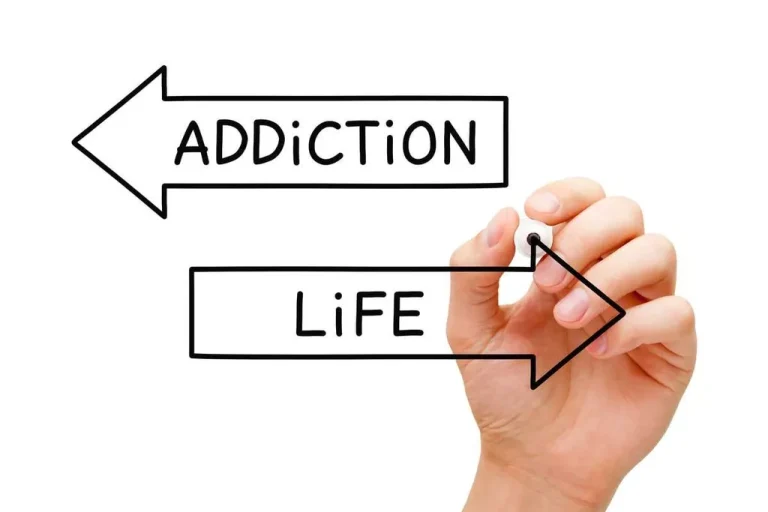
Studies show that individuals in recovery experience a significant improvement in liver function, heart health, and a decrease in the risk of certain cancers. Understanding the critical link between sobriety and mental health is the first step towards a life of personal freedom and well-being. By treating both aspects, you stand a better chance at sustaining sobriety and leading a fulfilling life.

How Do I Commit To Recovery?
As part of the journey to sobriety, cultivating healthy habits plays a crucial role. This includes adopting positive behaviors that support long-term recovery and well-being. In the preparation stage, individuals have a sense of urgency for sobriety and take steps how to avoid drinking again after sobriety to prepare themselves for treatment and a life without substances.
From sobriety to recovery

This choice might stem from a realization that substance use has become detrimental to one’s health, relationships, and overall life satisfaction. The initial decision to pursue sobriety is both empowering and challenging. It involves recognizing the adverse impacts of substance use and believing in the possibility of a fulfilling life without reliance on alcohol or drugs.
- Continue to read more about the interactions between Ozempic and alcohol.
- Sobriety is defined as “abstinence from alcohol or other drugs.” To achieve sobriety, one needs to end their dependence on the substance that has taken over their life.
- Achieving and maintaining sobriety is central to the recovery process from substance use disorders.
How Can You Stay Sober?
The mainstream concept of sobriety is commonly understood to mean completely refraining from a particular behavior or substance. The textbook definition of sobriety is simply not being intoxicated at a point in time. People in recovery from a substance use disorder frequently have problems meeting work-related responsibilities, maintaining employment, and managing money. If you were active in your addiction for a period of time, you may have developed financial problems. Research shows that if you maintain these types of toxic relationships, your chances of relapsing are greater.
Defining Sobriety: What Does It Mean To Be Sober?
Steeped in the 12-step philosophy and community, Shannon enthusiastically educates clients, especially newcomers in recovery, on the simple model and its transformative ways to a new life in sobriety. Developing a structured routine can help a person stick to their sobriety goals, make healthy decisions, and reduce the likelihood of triggers and relapse. Establishing a routine with regular sleep and support group attendance can reduce stress and help you stay sober. This article will describe sobriety in more detail, the challenges a person faces while working to stay sober, the options for treatment, and tips for building a sober lifestyle. Incorporating practices that promote general well-being, such as regular exercise, a healthy diet, and mindfulness exercises, can significantly impact your mental health. These habits help build a foundation for a sober lifestyle by enhancing emotional resilience and reducing stress.

Maintaining Sobriety: Signs of Progress and Sobriety Support
Fortunately, various resources are available across the United States to guide individuals on their journey to recovery. Acknowledging and celebrating the hard work of recovery is helpful for keeping you motivated and reminding you why you took this brave step toward sobriety in the first place. Instead, focus on things, experiences, and activities that will support your new, healthy lifestyle. For many people with a substance use disorder, Sobriety it’s simply a matter of never having learned the appropriate way to manage anger. Talk to your therapist, other healthcare provider, or sponsor about how to deal with your anger in ways that won’t cause you to harm yourself or others or turn to alcohol or drugs.
How to Stay Sober
- Relapse (using substances again after stopping) can and does happen, with 85% of people experiencing relapse at least once and half of them doing so within the first two weeks of sobriety.
- The choice of a sobriety symbol can be a personal one, and individuals in recovery may resonate with different symbols that hold meaning to them.
By prioritizing sobriety, individuals can experience not only financial benefits but also a range of positive changes in their personal and professional lives. Sobriety often leads to improved sleep patterns, allowing individuals to experience more restful and rejuvenating sleep. Alcohol and substance abuse can disrupt regular sleep cycles, leading to difficulties falling asleep and staying asleep.

Other studies suggest that roughly 50% of individuals who complete addiction treatment programs remain abstinent for a year, and this number increases with time and ongoing treatment. However, it’s important to note that abstinence is not synonymous with recovery or sobriety. While abstinence focuses solely on the absence of the addictive substance or behavior, recovery and sobriety encompass a broader range of actions and commitments.
The Role of Sobriety in Overcoming Substance Use Disorders
- Some of the immediate changes you will need to make will be obvious—like not hanging around the people that you used with or obtained drugs from.
- Full sobriety means being in a state where a person is free from the effects of alcohol or drugs, often considered the natural state of a human being at birth.
- Developing a structured routine can help a person stick to their sobriety goals, make healthy decisions, and reduce the likelihood of triggers and relapse.
- Mainstream concepts of sobriety often involve totally refraining from a substance or behavior.
- A sobriety date typically reflects a person’s first full day of sobriety.
- Choosing sobriety is often a transformative decision, requiring a deep personal commitment to change one’s life.
- By prioritizing sobriety, individuals can experience not only financial benefits but also a range of positive changes in their personal and professional lives.
Alcohol and substance abuse can weaken the immune system, making individuals more susceptible to infections and illnesses. However, by embracing sobriety, individuals can experience a boost in their immune function. A strong immune system is essential for fighting off pathogens and maintaining overall health. By abstaining from substances, individuals give their bodies the opportunity to repair and strengthen the immune system, leading to fewer illnesses and a better overall defense against infections. Alcohol and substance abuse can have detrimental effects on the liver, one of the body’s vital organs responsible for processing toxins.

